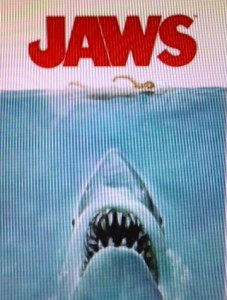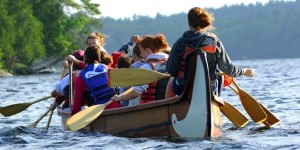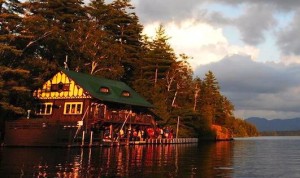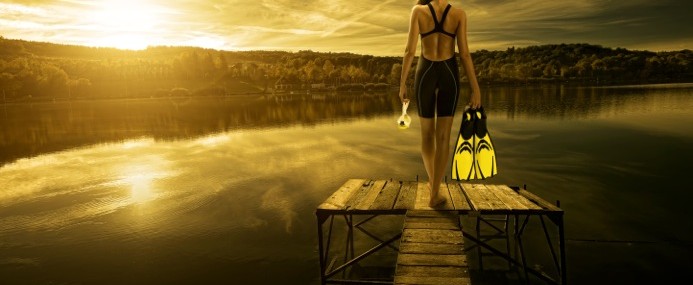In June 1975, Spielberg’s movie, Jaws, became a blockbuster. Chilling in its unpredictability, the movie left a searing mark on the imaginations of many.
 During production, the mechanical shark sank on its first test run, and the crew started calling it “Flaws.” But something interesting developed as a result of the failure. Spielberg said, “I had no choice but to figure out how to tell the story without the shark. So I just went back to Alfred Hitchcock: ‘What would Hitchcock do in a situation like this?’… It’s what we don’t see which is truly frightening,” Spielberg said. With that insight, he started using the shark’s point-of-view, and in effect heightened the suspense exponentially.
During production, the mechanical shark sank on its first test run, and the crew started calling it “Flaws.” But something interesting developed as a result of the failure. Spielberg said, “I had no choice but to figure out how to tell the story without the shark. So I just went back to Alfred Hitchcock: ‘What would Hitchcock do in a situation like this?’… It’s what we don’t see which is truly frightening,” Spielberg said. With that insight, he started using the shark’s point-of-view, and in effect heightened the suspense exponentially.
It ruined ocean swimming for me.
That same summer, I worked as a lifeguard at Young Life’s Saranac Village in upstate New York. Each week, hundreds of high school campers came to enjoy sailing, swimming, canoeing, waterskiing, and even parasailing. Many would remember their experience as “the best week of their life,” because they also heard the greatest story ever told.
 One week, a powerboat driver pulling a water-skier failed to see some campers in a canoe. Fortunately, the kids bailed before the motorboat careened into their vessel.
One week, a powerboat driver pulling a water-skier failed to see some campers in a canoe. Fortunately, the kids bailed before the motorboat careened into their vessel.
No one was hurt, but they hauled the wrecked canoe up on the beach.
If you’ve been around Young Life, you know the staff had to make up a funny story about how that canoe got so mangled. With the horror of Jaws on everyone’s mind, they spun the legend of a great white “lake” shark. In its youth, the baby shark adapted to fresh water by swimming up the St. Lawrence Seaway from the ocean. Over time, it worked its way through smaller tributaries into Saranac Lake, while growing bigger every year. Right!
But the tall tale didn’t end with a mythical shark lurking in dark waters like the Lochness monster.
At the same time, certain leaders had been teasing the kitchen staff about the sticky peanut butter bars served at lunch. The treat was so gooey and tough, you risked extracting all your fillings. It was perfect fodder to embellish the shark story.
Leaders explained to the campers that leftover bars had been dumped in the lake. The scent drew the alleged shark to the camp’s waterfront. After gorging on the bars, it subsequently lost all its teeth. Thus, they nicknamed the shark, “Gums.” One leader added, “Believe me—it’s far worse to be gummed to death.”
 The very next week, the camp hosted an inner-city group. The kids had never been on a waterfront, and therefore, were slightly more gullible. Leaders recounted the infamous story of Gums. The twisted canoe remain on the beach as tangible proof.
The very next week, the camp hosted an inner-city group. The kids had never been on a waterfront, and therefore, were slightly more gullible. Leaders recounted the infamous story of Gums. The twisted canoe remain on the beach as tangible proof.
“Ah dudes, you jus messin’ wid us,” one kid surmised.
So the boat drivers schemed a live skit to bolster the tale. Continue reading







